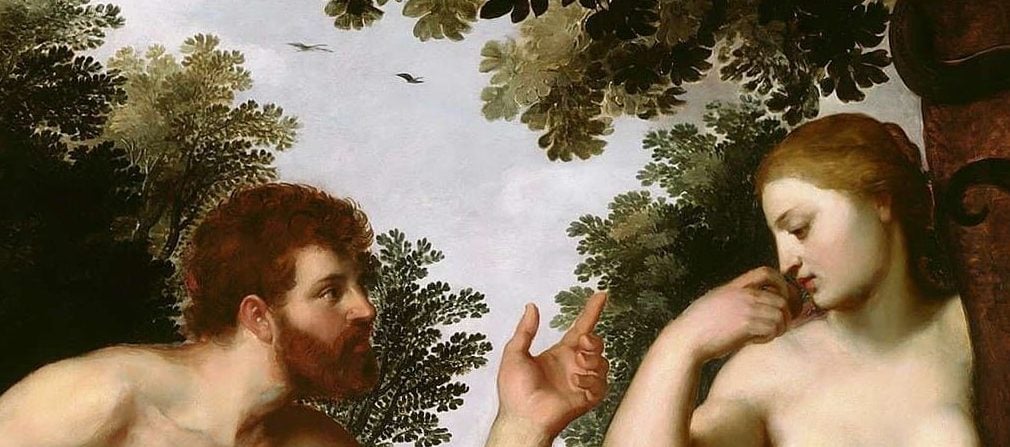According to Greek Mythology, there were five Ages of Man. The first of these was the Golden Age, where everything was wonderful and perfect. But is this mythical Golden Age of mankind only found in Greek Mythology, or is it also mentioned in the Bible?
What Were the Ages of Man?
The Greek poet Hesiod, who lived in the seventh century BC, was the first to describe the Ages of Man. This description is found in a poem called Works and Days. Hesiod divides humanity’s existence into five separate ages.
The first age is the Golden Age, in which humans live in total peace and harmony, even intermingling with the gods. People did not have to toil for their food, nor did they visibly age. After living a very long time, people died peacefully as if going to sleep, but they carried on living as spirits.
This Golden Age of peace and harmony was followed by much worse periods of humanity. In the Silver Age, people were wicked. They lived for 100 years as children, and then for a short time as adults. This wicked age refused to worship the gods, for which reason Zeus killed them. The following age, of Bronze, was full of brave and tough warriors. But this age was also destroyed by Zeus. Then came the Heroic Age, in which many of the adventures of Greek Mythology are set, like the Trojan War. The final age, of Iron, was the era in which Hesiod placed himself.
The Golden Age of Greek Mythology and the Bible
The Golden Age shares many obvious similarities with the story of Paradise in the first book of the Bible, Genesis. Just like in Greek Mythology, the Bible presents humans as starting off in an age of peace and harmony.
After Adam and Eve sin, God specifically tells them that they will now have to toil for their food, implying that they previously did not need to do this. This detail from the Bible is just like Hesiod’s description of man not needing to toil for their food during the Golden Age.
Another similarity with the Bible is the fact that humans were said to intermingle with the gods during the Golden Age. The brings to mind the description in the Bible of God ‘walking in the garden [of Eden]’.
Was it Really the Same Golden Age?
Is there any reason to believe that the Golden Age of Greek Mythology is actually connected to the story of Paradise in the Bible? Or is this simply a case of two cultures independently deciding that humanity must have started off in a perfect condition?
There are a few reasons to conclude that the Bible really was talking about the same Golden Age. For one thing, the way this peaceful period ends in both Greek Mythology and the Bible is very similar. Hesiod explains that the Golden Age ended when Prometheus stole fire from the gods and gave it to humanity. As a punishment, the gods created the first woman and gave her a jar full of terrible things, which she was told not to open. However, curiosity got the better of her, and she opened it anyway, releasing suffering into the world.
Similarly, the end of Paradise in the Bible involves a divine being (in this case, the Devil) getting humans to take something they were not supposed to have (like Prometheus giving humans fire from the gods). Furthermore, suffering entering the world comes about through the actions of the first woman.
This strongly suggests that the two cultures really did have the same era in mind.
How are Greek Mythology and the Bible Connected?
Why is the Greek myth of the Golden Age in the Bible? One theory is that the Bible story comes directly from Greek Mythology. However, the earliest major contact between the Greeks and the Israelites occurred when Alexander the Great conquered the Levant. This was in the fourth century BC, long after Genesis was written, so the Israelites could not have taken this story from the Greeks.
On the other hand, could the Greeks have taken it from the Israelites? Well, the Bible book of Joel, which was probably written in the ninth century BC, mentions that the Phoenicians were selling Jewish captives to the Greeks. This predates the composition of Hesiod’s Works and Days by about two centuries.
However, it seems unlikely that Jewish slaves would have contributed so much to Greek mythology. They would have had a very low status in the society of that time. Therefore, this does not seem very likely either.
The most likely explanation is that both the story of the Golden Age in Greek mythology and the similar account in the Bible share a common origin from long before either one was actually written down – perhaps as far back as the ancient Sumerian civilization. This would explain why we also find similar stories in many other cultures too.
Source: Greek Reporter







